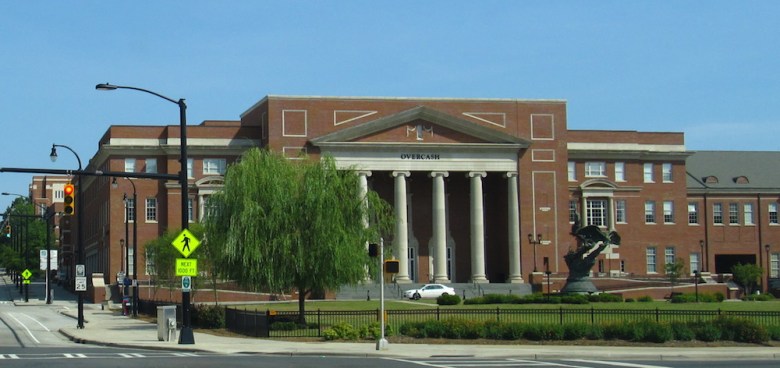
CHARLOTTE, N.C. — As activists and community organizations rally around a transgender student who claimed she was harassed by campus security, officials at Central Piedmont Community College (CPCC) say their policies are “evolving,” though they currently do not include any protections for LGBT students or faculty.
A CPCC student-organized protest is planned this Friday in support of transgender student Andraya Williams, who has said campus security officers harassed and detained her before escorting her off campus on March 18. She is considering filing a civil rights complaint if CPCC does not proactively address the incident.
Williams’ attorney, Sarah Demarest of Charlotte’s LGBTQ Law Center, said Wednesday morning she is disappointed that CPCC has failed to adequately address the situation.
“This was about prejudice and harassment,” she said. “Now it’s about prejudice, harassment and excuses.”
updates
March 30: Transgender student says she was harassed, detained
March 31: Attorney says civil rights complaint possible after harassment of transgender student
April 2: CPCC: No LGBT-inclusive protections for students or faculty
April 2: CPCC report reveals transgender student did show ID
Stay up to date: Click here to follow this unfolding story
She and Williams plan on moving forward with their case. They had earlier stated they would seek further recourse if CPCC failed to act.
“We are wanting to give CPCC time to take action on their own, but if they are unwilling, we are prepared to file a complaint with the U.S. Department of Education’s Office of Civil Rights,” Demarest said Monday.
Other organizations and leaders are also speaking out in Williams’ defense. On Monday evening, students and youth with Prism, an LGBT Community Center of Charlotte-sponsored group for youth ages 18-28, released a statement asking CPCC to issue a formal apology to Williams and update their campus policies. Students from Spectrum, the LGBT student organization at the University of North Carolina-Charlotte, are also supporting Williams and plan to be at the Friday protest. Laverne Cox, a transgender actress who portrays a transgender character on Netflix’s “Orange is the New Black,” also sent messages of support via Twitter yesterday.
Policies might have prevented discrimination
The alleged discrimination at CPCC might have been prevented or more proactively addressed by concrete policies and practices already in place at other schools. More than 700 colleges across the U.S., for example, have at least added gender identity to their basic non-discrimination policies, according to a database from Campus Pride, a Charlotte-based national LGBT student advocacy organization.
Currently, however, CPCC includes neither sexual orientation nor gender identity in their basic non-discrimination and anti-harassment policy.
CPCC spokesperson Jeff Lowrance said Tuesday that the school’s policies are “evolving.”
“CPCC’s policies constantly evolve to the meet the changing needs of students, employees and the institution,” Lowrance said in an email. “Central Piedmont, like many colleges and universities across the country, is just starting to understand the needs of transgender students, and discussions will continue. However, the college must balance these needs with those of the general student population. All students rightfully expect and deserve a safe and respectful environment to learn. CPCC wants to be fair and considerate of all of its students, while being mindful of the law.”
Other schools in the region do include at least sexual orientation, including UNC-Charlotte, which protects students on the basis of both sexual orientation and gender identity. UNC-Charlotte also has several other policies and practices protecting LGBT students.
Joshua Burford, UNC-Charlotte’s assistant director for sexual and gender diversity, said it is important for colleges and universities to protect LGBT students and prepare all students for life in a diverse world.
“Having policies in place to address specific needs is really important,” said Burford, who knows of only two problematic incidents which have occurred on his campus in the nearly two years he’s been there. Because policies and practices were already in place, he and other university staff were able to quickly and proactively address the incidents, protect the students affect and use the incidents as an educational moment for others involved.
“That’s what policies are for, so we know how to respond,” he said.
[Ed. Note — In the first version of this story, the original date of the first incident between Williams and CPCC security was mistakenly reported as March 19. The incident actually occurred on Tuesday, March 18. The story has been updated. We regret this error.]




